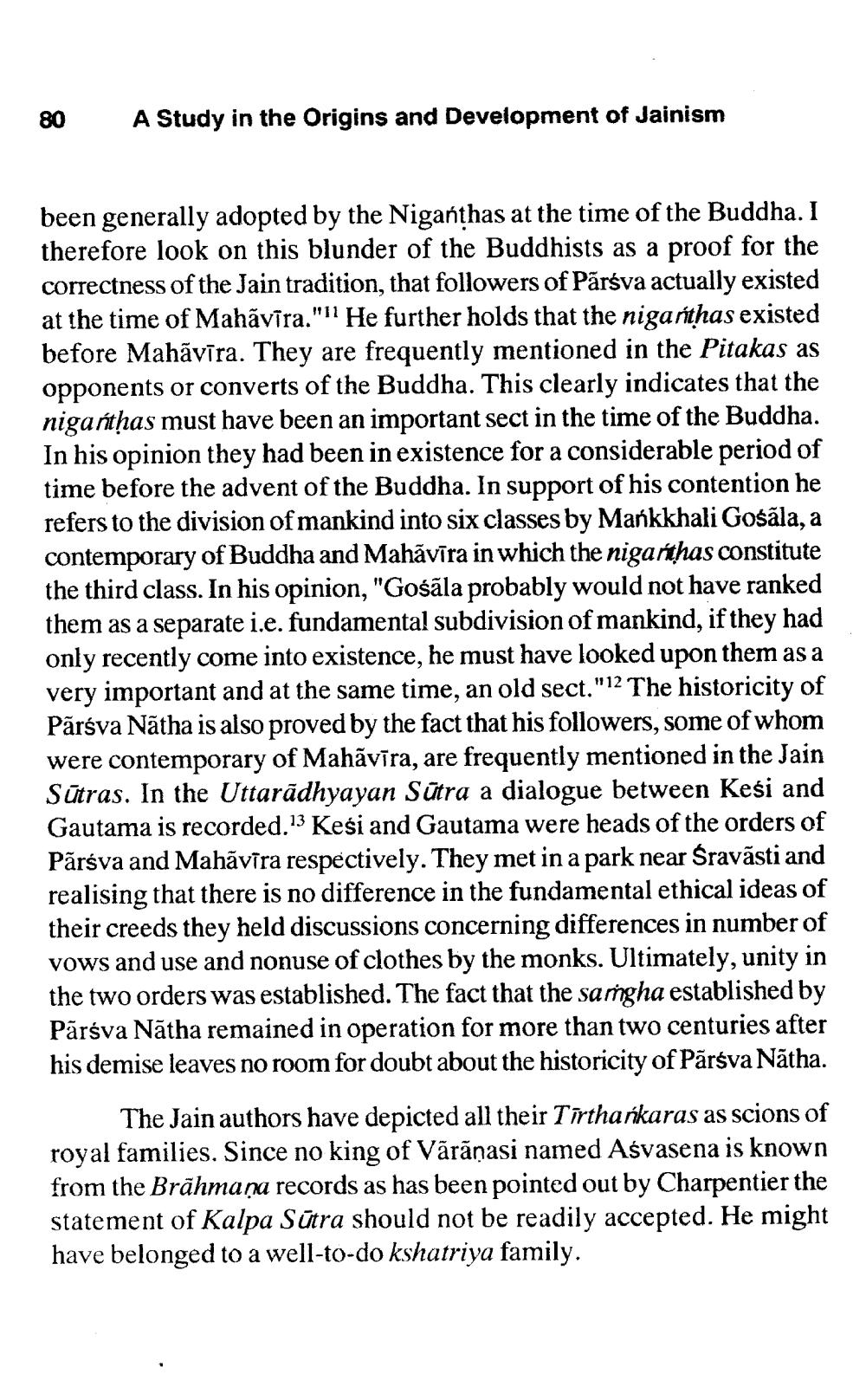________________
80
A Study in the Origins and Development of Jainism
been generally adopted by the Niganthas at the time of the Buddha. I therefore look on this blunder of the Buddhists as a proof for the correctness of the Jain tradition, that followers of Pārśva actually existed at the time of Mahāvīra."'1 He further holds that the niganthas existed before Mahāvīra. They are frequently mentioned in the Pitakas as opponents or converts of the Buddha. This clearly indicates that the nigańhas must have been an important sect in the time of the Buddha. In his opinion they had been in existence for a considerable period of time before the advent of the Buddha. In support of his contention he refers to the division of mankind into six classes by Mankkhali Gośāla, a contemporary of Buddha and Mahāvīra in which the nigarthas constitute the third class. In his opinion, "Gośāla probably would not have ranked them as a separate i.e. fundamental subdivision of mankind, if they had only recently come into existence, he must have looked upon them as a very important and at the same time, an old sect."12 The historicity of Pārsva Nãtha is also proved by the fact that his followers, some of whom were contemporary of Mahāvīra, are frequently mentioned in the Jain Sūtras. In the Uttarādhyayan Sūtra a dialogue between Keśi and Gautama is recorded." Kesi and Gautama were heads of the orders of Pārśva and Mahāvīra respectively. They met in a park near Śravasti and realising that there is no difference in the fundamental ethical ideas of their creeds they held discussions concerning differences in number of vows and use and nonuse of clothes by the monks. Ultimately, unity in the two orders was established. The fact that the samgha established by Pārśva Nātha remained in operation for more than two centuries after his demise leaves no room for doubt about the historicity of Pārsva Nãtha.
The Jain authors have depicted all their Tīrthařkaras as scions of royal families. Since no king of Vārāṇasi named Aśvasena is known from the Brāhmaṇa records as has been pointed out by Charpentier the statement of Kalpa Sūtra should not be readily accepted. He might have belonged to a well-to-do kshatriya family.




